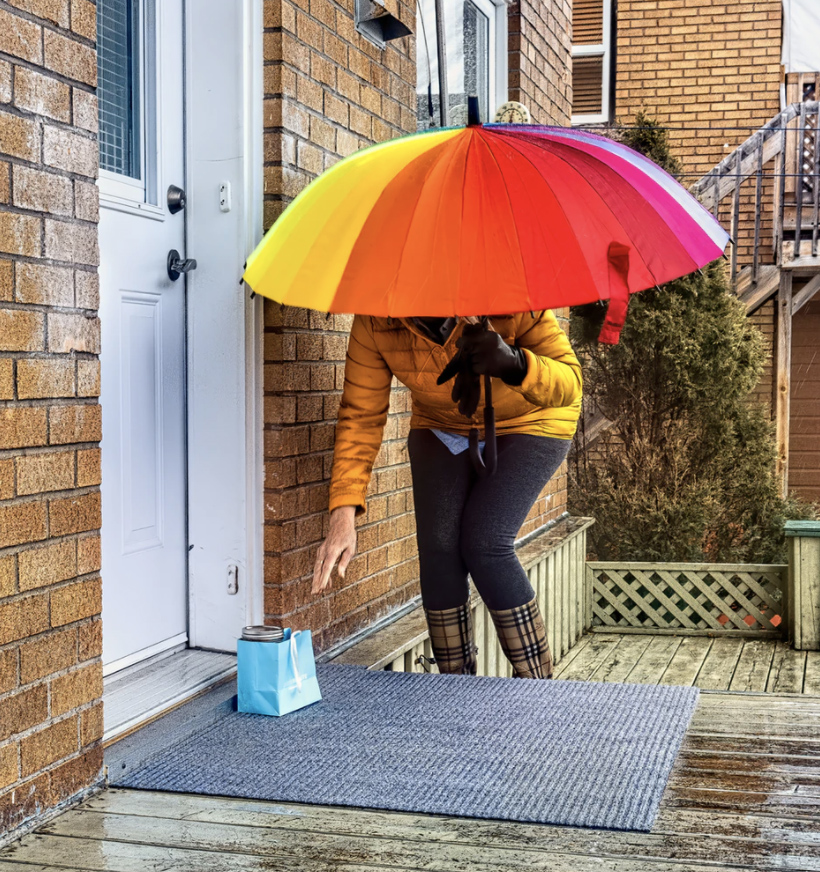I have an embarrassing confession to make: I kind of like Facebook.
There's no doubt that social media is responsible for a lot of bad stuff. We hear about how it polarises people and politics, undermines democracy and breeds loneliness, bullying and unkindness. But some argue that when used in the right way it can foster kindness, collaboration and connection and help us live more sustainably.
In 2018 I started a local community sharing group on Facebook for giveaways, items wanted, swaps, requests for, and offers of, help, and sharing of community information. The main rule is that no business promotion or financial transactions are permitted (with a couple of exceptions: fundraisers and joint bulk purchases of goods).
Over the course of two years this is what I've seen:
- people cooperating to develop the group rules, which evolve over time, in a democratic way
- women fleeing unsafe or difficult home situations and needing to set up new homes with the basics. Within hours, members had offered furniture, bedding, electrical appliances (including big things, like fridges), clothes, books and toys for their children, AND delivery of these items – all for free and with no expectation of anything in return
- people lending items to complete strangers: trailers, crutches, tools, kitchen items, appliances, books and more
- a brand-new vacuum cleaner delivered to a family in need who couldn't afford to buy one immediately
- neighbours who met through the group inviting each other in for spontaneous cups of tea or glasses of wine
- meet-ups organised: garden tours, plant swaps, an afternoon tea and a mum-baby walking group
- people helping others with dog walking, gardening, photography, jump-starting cars, lifting heavy things, transport, putting bins out, delivery of groceries and garden produce, and free accommodation for people in quarantine

- members coordinating bulk purchases of items to save money and time; everything from toilet paper to backyard chickens
- thousands of dollars saved collectively by members sourcing giveaways locally, and huge amounts of stuff diverted from landfill. Not to mention time and petrol saved – why drive to the shops when your neighbour might have exactly what you're looking for gathering dust in their shed, or parsley for your recipe in their garden?
- sharing of skills and knowledge, like how to make sourdough bread and compost
- recovery of lost valuables, such as wedding rings, by a member with a metal detector; a service he provides for free. The only condition is that you need to give him a lift as his eyesight is failing and he doesn't drive
- the establishment of two community compost bins (in people's driveways) and a free seed library. This is a little street library where people can deposit and collect vegetable and flower seeds, either collected from their gardens or left over from seed packets. Many volunteers are involved in this project, and seeds of over 20 different vegetable and flower varieties are available in the library at any one time
And the negatives? A total of two or three posts that needed to be deleted because they were abusive or inappropriate – this in two years in an extremely active group of 1500 members (over four per cent of the municipality's population).
I've witnessed dozens of connections being made between neighbours. While these won't all develop into close friendships, does this really matter? Research shows that 'social integration' – the number of people we have superficial interactions with as we move through our day – is hugely beneficial to our wellbeing and is one of the main predictors of longevity.
I recently asked members about their experiences in the group. I got many different responses, but the general feeling was summed up by the words of two members: 'Through this group I have gained a much more positive feeling about my neighbourhood. It's made me feel a lot happier about where I live.' And 'I love this group. It has made me realise how many generous, kind and community-minded people we have in our community.'
Community Facebook groups enable people to conduct convenient, friendly transactions that make them feel good and help them save money and time. As a welcome side effect, these groups could help communities become more resilient and sustainable.
This group has convinced me that social media can promote real world connection and that people genuinely want to reduce waste and to help others outside of their immediate circle.
It's also shown me that things like who you vote for, your education level and your age don't really matter. We can make progress towards stronger, happier and more sustainable communities without ever discussing politics or sustainability. Sharing groups bring together people from entirely different demographics, united by one underlying need that we all have in common (even if we don't realise it): the need to be part of a community.
Follow Collective Kindness to find out what's happening in community groups around Australia.
By Eve White
Eve White is a freelance editor and writer, specialising in science and technology. You can find Eve on Facebook here and her website here.
